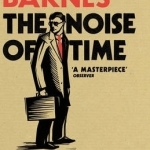The Noise of Time
BookThis item doesn’t have any media yet
2017 | Fiction & Poetry
"Barnes's Masterpiece" (Observer). In May 1937, a man in his early thirties waits by the lift of a Leningrad apartment block. He waits all through the night, expecting to be taken away to the Big House. Any celebrity he has known in the previous decade is no use to him now. And few who are taken to the Big House ever return. "Stunning." (Sunday Times). "A profound meditation on power and the relationship of art and power...It is a masterpiece of sympathetic understanding...I don't think Barnes has written a finer, more truthful or more profound book." (Scotsman). "A tour de force by a master novelist at the top of his game." (Daily Express).
Related Items:
| Published by | Vintage Publishing |
| Edition | Unknown |
| ISBN | 9781784703325 |
| Language | English |
| Edition | Hardcover |
| ISBN | 9781910702604 |
| Language | English |
Images And Data Courtesy Of: Vintage Publishing.
This content (including text, images, videos and other media) is published and used in accordance
with Fair Use.
| 9-10 |
|
33.3% (1) | |
| 7-8 |
|
66.7% (2) | |
| 5-6 |
|
0.0% (0) | |
| 3-4 |
|
0.0% (0) | |
| 1-2 |
|
0.0% (0) |
